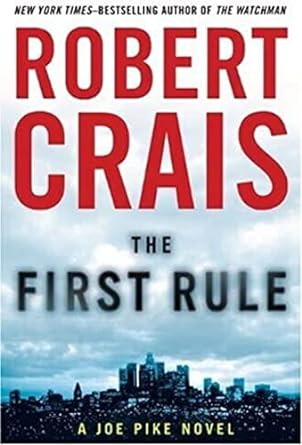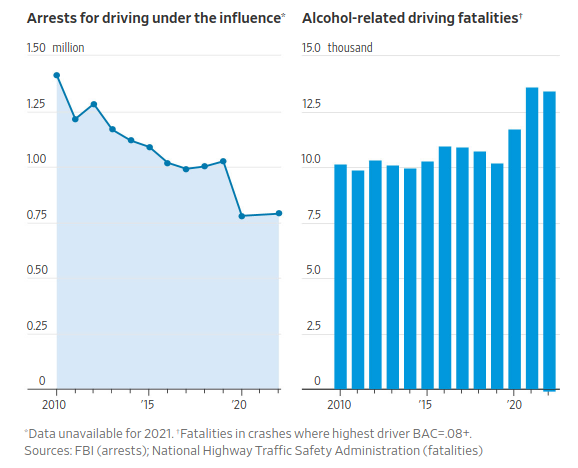Well, Andy McCarthy was right. The fix was in.
The WSJ editorialists look at A Guilty Verdict for Trump and Its Consequences for the Country.
Twelve New York jurors have found Donald Trump guilty of falsifying business records, a total of 34 felony counts, in history’s first criminal conviction of a former President. What a volatile moment for the country. Will the judge jail Mr. Trump? Will voters re-elect him in November anyway, in disgust of this concocted case? What if it’s thrown out on appeal? Will Republicans retaliate? The nation might soon regret this rough turn.
Their closing paragraph:
The conviction sets a precedent of using legal cases, no matter how sketchy, to try to knock out political opponents, including former Presidents. Mr. Trump has already vowed to return the favor. If Democrats felt like cheering Thursday when the guilty verdict was read, they should think again. Mr. Bragg might have opened a new destabilizing era of American politics, and no one can say how it will end.
At NR, Jeffrey Blehar is also predicting dark days ahead: Pandora’s Box Is Now Opened, and We’re About to Find Out What’s Inside.
“What’s in the box?” Brad Pitt once disconsolately wailed at the end of a film starring a pervert playing a pervert. But he then already knew. We do not.
Donald Trump has now been convicted of 34 felony counts of falsifying business records pursuant to an extremely dubious legal theory, and will be sentenced on July 11, a mere four days before the Republican National Convention begins in Milwaukee. And if you think you know what happens next, you are wildly overconfident. Perhaps Joe Biden and Democrats will be hit with an electoral backlash as voters turn away in disgust at what was — regardless of one’s opinion of Trump — an appallingly politicized prosecution in every single respect. Or perhaps suburban women will be reminded why they have always loathed Donald Trump (e.g., he is a horrible human being who cheated on his wife with a porn star and then sought to cover it up), and Trump will once again narrowly lose. Down either road lies madness, but madness is once again the only option on offer for Americans in November.
Either way, we will now discover what unsightly horrors are preparing to scuttle out of a Pandora’s box that, once opened, can never be shut again. And Republicans head into 2024 with the possibility of fumbling a presidential election that would have been easily won by nearly anyone not named Donald Trump.
I recently read Mythos by Stephen Fry, his take on ancient Greek myths. You (like me) may need to be remembered that after "all the evils of the world" were released by Pandora from her famous Box, there was one left inside, usually translated as "Hope". See our Amazon Product du Jour!
But the Wikipedia page (and Fry) also mention that "it could also have the pessimistic meaning of 'deceptive expectation'."
Jacob Sullum has also been a critic of the persecution/prosecution. He summarizes the result: New York Trump Verdict Suggests Jurors Bought Prosecutors' Dubious 'Election Fraud' Narrative. His bottom line:
Last week, New York Times columnist David French worried about the consequences of a conviction that is overturned on appeal. "Imagine a scenario in which Trump is convicted at the trial, Biden condemns him as a felon and the Biden campaign runs ads mocking him as a convict," he wrote. "If Biden wins a narrow victory but then an appeals court tosses out the conviction, this case could well undermine faith in our democracy and the rule of law." In his desperation to prevent Trump from reoccupying the White House, Bragg has already accomplished that.
But other stuff has been going on too…
Also of note:
-
Sheldon and Amy need to do a new episode of "Fun With Flags". But until that happens, Robby Soave will do: Samuel Alito's 'Appeal to Heaven' Flag Got Retconned. His subhed: "This is becoming ridiculous." And his bottom line:
For decades, San Francisco's city hall has flown the "Appeal to Heaven" flag alongside other cherished, patriotic banners. In response to the Alito controversy, the city announced this week that it had removed the flag. This is madness. It's retconning. That picture of a pine tree is not a right-wing symbol of hate; cowards are turning it into one.
In case you are not a fan of The Big Bang Theory: here's an explanation of the above headline.
-
And, beyond that: it's about controlling people. At FEE, Jon Miltimore corrects the record: Net Neutrality Is Not about ‘Saving the Internet.’ It's about Controlling the Internet.
In 2017, late-night host Stephen Colbert told his audience that it was “a sad day” because the Federal Communications Commission (FCC) had voted to repeal Net Neutrality, an Obama-era rule that required Internet Service Providers (ISPs) to offer “equal access” and speeds to all lawful websites and content regardless of their source, and prohibiting “fast lanes” for certain content.
“What that really means, it means repealing regulations that prevented your Internet provider from blocking certain websites or slowing down your data,” Colbert said. “Now they can. And that’s wrong.”
Repeal of these regulations didn’t just portend the death of the Internet. It marked the triumph of Russia, Colbert suggested, pointing to FCC Commissioner Jessica Rosenworcel’s claim that a half-million public comments came from “Russian email addresses.”
“C’mon, Russia,” Colbert said. “Can’t you just leave America alone?”
The implication was clear. Killing Net Neutrality would destroy the Internet (and may have been a Putin plot).
Colbert was not the only person to make such claims, of course. Senate Democrats said that if we failed to save Net Neutrality, we’d get the Internet “one word at a time.” Actor Mark Ruffalo said that repeal was an “authoritarian dream,” and actress Alyssa Milano called it a threat to democracy itself.
Miltimore notices (and you may have too) that the hysteria was unjustified. But giving bureaucrats "democratic" control over a large swath of economic activity is not going to work well for liberty.
-
Those who forget history are doomed to… have something bad happen, I forget what exactly. Jeffrey A. Singer reminds us, fortunately: Iron Law of Prohibition: Nicotine Edition.
In 2016, the Food and Drug Administration (FDA) assumed the authority to regulate all nicotine‐containing products, including electronic nicotine delivery systems, such as e‑cigarettes. E‑cigarette manufacturers were given until September 9, 2020, to submit applications to the FDA for the agency to approve the marketing of their products. The agency received nearly seven million applications by the deadline and is still reviewing many of them. It has rejected more than a million flavored vape applications.
However, non‐nicotine synthetics that have chemical structures resembling nicotine are exempt from FDA regulation. Thus, people who wish to consume relatively harmless nicotine because they value its stimulative and calming effects can work around government obstructions by accessing nicotine‐analog products. The government does not require makers of synthetic nicotine analogs to obtain FDA approval before they can market them to consumers. And consumers are purchasing these products.
Singer notes an analogous case:
Prohibition resulted in drug trafficking organizations moving from diverted prescription pain pills to heroin, from heroin to fentanyl, from fentanyl to fentanyl mixed with xylazine, and now from that to fentanyl mixed with medetomidine and nitazenes.
I will point out (again) that the University Near Here has gone full-Carrie-Nation on "Tobacco, Smoke and Nicotine". Wait until they find out about 6-methyl nicotine!
![[Amazon Link]](/ps/asin_imgs/B0BQ6RKNY7.jpg)
![[Amazon Link]](/ps/asin_imgs/B076FQJT2C.jpg)

![[Amazon Link]](/ps/asin_imgs/1731021844.jpg)
![[Amazon Link]](/ps/asin_imgs/B0CCXSZV5W.jpg)




![[Memorial Day]](/ps/images/1tevlin0810.jpg)
![[Amazon Link]](/ps/asin_imgs/B0BKGK9GH8.jpg)
![[Amazon Link]](/ps/asin_imgs/B0D1TDTYNZ.jpg)

![[Amazon Link]](/ps/asin_imgs/B07H3VKCSG.jpg)

![[Amazon Link]](/ps/asin_imgs/0197658504.jpg)
![[Amazon Link]](/ps/asin_imgs/1444421344.jpg)


![[Amazon Link]](/ps/asin_imgs/1952223865.jpg)
![[Amazon Link]](/ps/asin_imgs/1501714414.jpg)
![[Amazon Link]](/ps/asin_imgs/B08FXVXGPK.jpg)





![[4 stars]](/ps/images/40stars.gif)
![[IMDB Link]](https://ia.media-imdb.com/images/G/01/imdb/plugins/rating/images/imdb_46x22.png)
![[Amazon Link]](/ps/asin_imgs/B0CKRXD9SX.jpg)


![[Amazon Link]](/ps/asin_imgs/0226315398.jpg)
![[Amazon Link]](/ps/asin_imgs/1934832936.jpg)


![[Amazon Link]](/ps/asin_imgs/0684862697.jpg)


![[Amazon Link]](/ps/asin_imgs/B0CB5BLHWR.jpg)
![[Amazon Link]](/ps/asin_imgs/B000GBPUPS.jpg)
![[The Blogger and His Dog]](/ps/images/me_with_barney.jpg)



